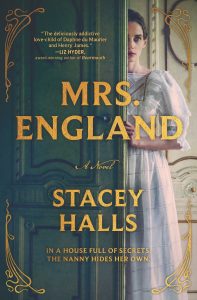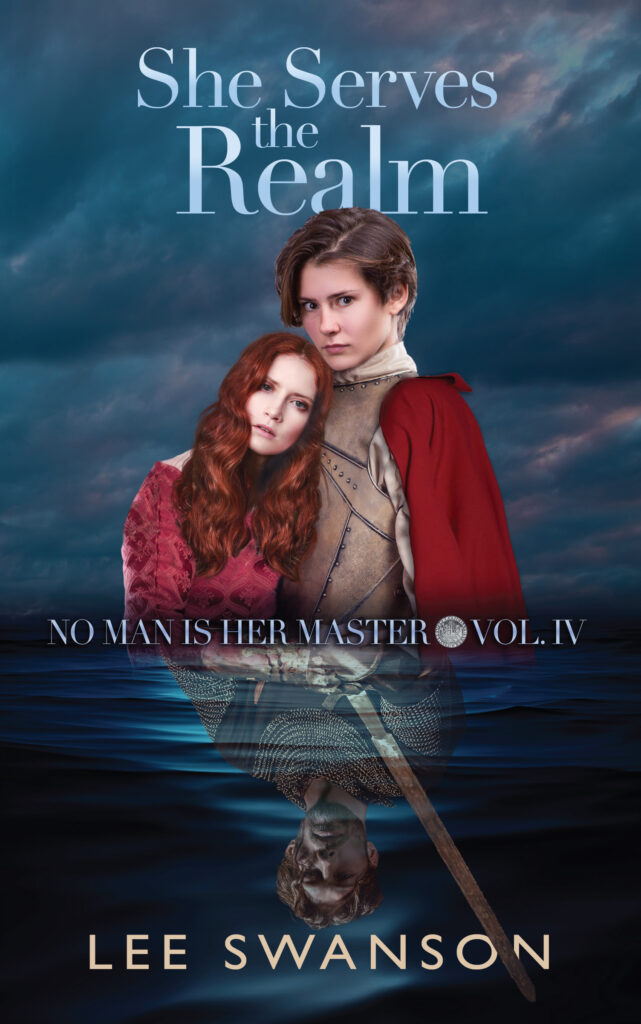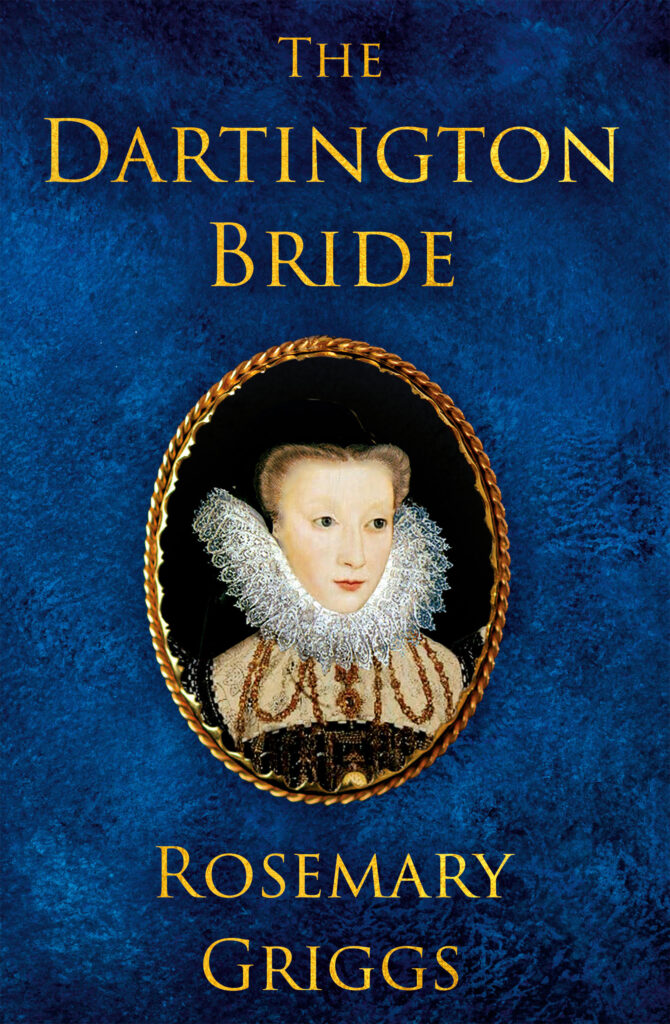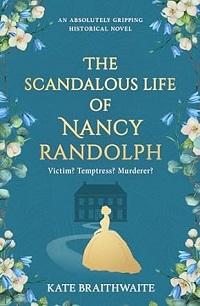Stacey Halls Updates the Gothic Novel in Mrs. England
 BY TRISH MACENULTY
BY TRISH MACENULTY
In the 18th and 19th centuries, during the heyday of the Gothic novel, English women, especially in the middle and upper classes, were little more than chattel with few rights and fewer means to support themselves in an oppressive, patriarchal society. These circumstances provided fodder for writers who expressed the oppression of women in evocative landscapes, supernatural terrors, and madness. The patriarchy often took the form of a tyrannical man.
Author Stacey Halls says she was inspired by Gothic novels such as Rebecca, My Cousin Rachel and Jane Eyre in the writing of her most recent novel, Mrs. England (MIRA, 2022). In the past, the writers of Gothic novels buried the core issues of their stories in atmospherics and the supernatural, but in her novel, Halls repurposes the genre for contemporary readers by bringing the issues to the surface.
The novel is set in the year 1904. Ruby May has an ideal position for a young nurse with a loving family in London. However, when the family offers her the chance to come with them to America, Ruby refuses to leave. Her reasons are inscrutable at first, but as the plot progresses, Ruby’s dilemma becomes apparent. She must stay in England to protect and provide for her younger sister, who has been disabled by a tragic accident. Fortunately (or so it seems) Ruby gets another position with a family in West Yorkshire.
As with any good Gothic novel, a rambling, isolated house in the moors, far from the city, provides the ominous setting. The children are easy enough to care for, but their moody and distant mother takes little interest in them. Instead, to Ruby’s surprise, it is Mr. England, a buoyant presence in the house, who instructs Ruby in the care of the children. Ruby finds herself drawn to his warmth and joviality, and she silently condemns Mrs. England for her coldness towards her children. But when Mrs. England’s strange behavior takes the form of endangering the lives of everyone in the house, Ruby begins to suspect there’s something more sinister afoot than mere thoughtlessness.

author photo by Ollie Grove
“I wanted to write a novel exploring the dark side of an on-the-surface-idyllic childhood in Edwardian England, inspired by some of my own favourite books and films growing up,” Halls says. “As a child I loved Mary Poppins, The Secret Garden, The Railway Children and Peter Pan, all for their idealised depictions of childhood and the adventures the children had.”
As an adult Halls realized those stories contained darker elements.
“I wanted to write about a toxic family dynamic from the point of view of this outsider, who lives in a strange realm between servant and family member,” she said, noting that in most books nannies had little-to-no agency.
Similar to Henry James’ The Turn of the Screw, certain elements of the book are ambiguous. The reader may sometimes distrust Ruby’s perceptions of the situation. However, in this case her unreliability serves a larger purpose. As we understand today, the primary goal of narcissists is to confuse their victims and make them doubt their own judgment. Ruby is easily manipulated because she is young and because she comes from a family whose security has been destroyed by mental illness.
“I wanted to create an atmosphere of uncertainty and deception, where it isn’t clear who is being deceived and who is doing the deceiving. I did a lot of research into coercive control, or emotional abuse, and the most common revelation was that victims don’t know or understand that it is happening to them. The ground is constantly shifting beneath them,” Halls said.
This is certainly true for Ruby as she tries to understand Mrs. England’s motivations while struggling to keep her own secrets.
“I always try to make my characters realistic, therefore nuanced. No character is wholly good or wholly bad, just as no person is. I try to get to know them, which sounds slightly odd, as I create them, but I almost fill out a mental questionnaire about them: how they see themselves, how others see them, who their idols are, what their fears are,” Halls said. “Ruby is trying her best to be professional, reliable, respectable: everything she thinks a nurse should be. Her desire to belong to an aspirational family is a primitive one, based on her own background. She wants a second go at childhood with a ‘proper’ family. At the same time she is green, naive and a little standoffish.”
At some point, Ruby begins to understand that Mrs. England has no options as indeed most women in 1904 didn’t — even if she came from a rich and powerful family. Divorce, at the time, was incredibly difficult for a woman, so she was trapped in her marriage no matter how toxic it might be.
“A man could divorce his wife for adultery, but a woman had to prove adultery and also cruelty, desertion, bigamy or incest to divorce her husband. She would have no legal right to her children if her husband divorced her,” Halls said, which may explain why so many women simply went mad.
Halls intentionally creates a slow build up of tension, using atmosphere, misunderstandings, the slow revelation of secrets, and seemingly everyday household conflicts to lead up to an explosive ending.
“Because the drama all takes place at the house, you can’t have twists and fireworks going off every five minutes,” she said. “it has to be more subtle and contained.”
Stacey Halls has written a dark and compelling book that readers may find relevant to issues women face even now. Gothic novels guided readers to look past appearances. Mrs. England does the same.
About the contributor: Trish MacEnulty is the author of four novels, a short story collection, and a memoir. She is currently preparing to publish her first work of historical fiction, under the pen name, Patricia Bartlett.






